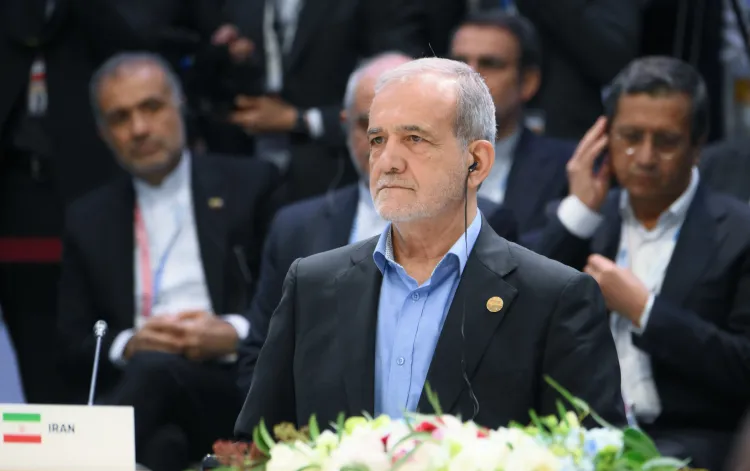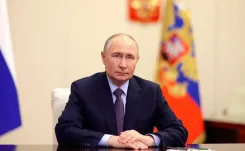Is Iran Set to Withdraw from the Nuclear Treaty Amid Rising Tensions with Israel?

Synopsis
Key Takeaways
- Iran's Parliament is drafting legislation to withdraw from the NPT.
- The NPT seeks to prevent the spread of nuclear weapons.
- Iran asserts its right to nuclear energy under international law.
- Recent hostilities have resulted in significant casualties in both Iran and Israel.
- Global concerns about nuclear stability are escalating.
Tehran, June 16 (NationPress) Amid escalating tensions with Israel, Iran announced on Monday that its Parliament is in the process of creating legislation to exit the Non-Proliferation Treaty (NPT) concerning nuclear weapons. This development raises significant global apprehensions regarding the future of nuclear stability in the region.
The announcement was made alongside remarks from Iranian President Masoud Pezeshkian, who reaffirmed Tehran's position that it does not intend to develop nuclear weapons.
He emphasized that Iran's nuclear endeavors remain concentrated on peaceful energy and research, in accordance with Supreme Leader Ayatollah Ali Khamenei's enduring religious decree against weapons of mass destruction.
"The Islamic Republic of Iran firmly opposes the proliferation of nuclear arms but will assert its legitimate rights to nuclear energy and research as per international law," Pezeshkian stated.
The NPT, a pivotal international agreement that took effect in 1970, aims to hinder the proliferation of nuclear weapons, promote peaceful nuclear energy usage, and encourage nuclear disarmament.
Iran's potential departure from this treaty would significantly escalate tensions, exacerbating global fears of a nuclear arms race in the Middle East.
This announcement comes after three consecutive days of intense missile exchanges between Israel and Iran, with no indication of a ceasefire.
On Monday, Israel urged civilians residing near crucial Iranian weapon sites to evacuate, indicating that further military actions were forthcoming. Israeli officials noted that "a long list of targets remains," and military operations would persist.
Since the collapse of the 2015 nuclear agreement following the US withdrawal in 2018, Iran's uranium enrichment capabilities have notably expanded.
While Tehran maintains that its nuclear program is peaceful, the International Atomic Energy Agency (IAEA) has cautioned that Iran has enough enriched uranium to potentially create multiple nuclear warheads should it decide to pursue that path.
In a related incident, Iran's judiciary announced on Monday the execution of Esmaeil Fekri, who was convicted of espionage for Israel's Mossad intelligence agency.
He faced charges of "corruption on Earth" and "moharebeh" (waging war against God), as reported by the Mizan Online news agency. The execution was executed after the Supreme Court upheld the sentence.
The recent escalation began on Friday with Israel's surprise wave of strikes, which targeted Iran's nuclear and military infrastructure.
Since then, at least 224 individuals, including senior military officials, nuclear scientists, and civilians, have lost their lives in Iran.
Iran has retaliated with missile and drone assaults that have resulted in at least 24 fatalities in Israel.









